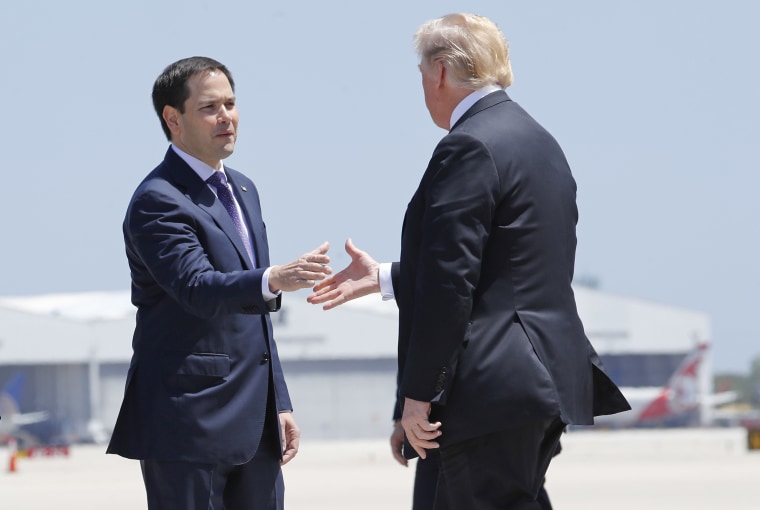WASHINGTON — On the first day of the new Senate, top Republicans are pushing back on President Trump's move to withdraw all U.S. troops from Syria with a bill imposing new sanctions on the country and boosting security cooperation with neighboring Israel and Jordan.
Although Congress can't force the commander-in-chief to keep troops in Syria, Senate aides say the move is designed to illustrate the need for a strong, continuing U.S. presence in the Middle East and re-assert the role of Congress on national security. It comes as many of Trump's GOP allies have joined Democrats in deploring his announcement of a Syria withdrawal without consulting allies and lamenting the subsequent resignation of former Defense Secretary Jim Mattis.
Senate Bill 1, introduced Thursday by Sen. Marco Rubio, R-Fla., is being co-sponsored by Senate Majority Leader Mitch McConnell of Kentucky and incoming Senate Foreign Relations Committee Chairman Jim Risch of Idaho. It's expected to be considered under what's known as Rule 14, which lets a bill bypass the time-consuming committee process and head directly to the Senate floor. Senate officials say they expect it to be one of the first pieces of business taken up by the new Senate. A McConnell spokesman didn't immediately respond when asked when the bill might get a vote.
The bill, also called the Strengthening America's Security in the Middle East Act, rolls together four bills that were supported by both Democrats and Republicans in the last Congress but weren't ultimately enacted before the year ran out.
It includes what was known as the Caesar Syria Civilian Protection Act that would slap new sanctions on Syrian President Bashar al-Assad's government in response to alleged human rights violations. It was passed unanimously by the House in the last Congress, but Senate aides say that Sen. Rand Paul of Kentucky blocked it by obstructing attempts to use "unanimous consent" instead of a formal vote to pass it. In the House, a standalone version of the Syria sanctions bill was reintroduced Thursdays by Rep. Eliot Engel, D-N.Y., who is expected to take over as the House Foreign Affairs Committee chairman.
Other parts of the Senate bill aim to bolster U.S. support for allies who neighbor Syria and are thus on the front lines of pushing back against the extremist threat in Syria as well as Iran's presence there. One piece boosts U.S. defense cooperation with Jordan while another authorizes continued U.S. financing to Israel to buy American weapons and allows the U.S. to transfer its own munitions to Israel in an emergency. Another component takes aim at the "Boycott, Divestment, Sanctions" movement that seeks to delegitimize Israeli settlement-building in the West Bank.
"It is in America's national security interests to ensure that our allies in the Middle East like Israel and Jordan remain secure amid the region's growing destabilizing threats posed by Iran and Syria's Assad regime," Rubio said.
Since Trump announced in December he was pulling all U.S. troops out, over the objection of nearly his entire national security team, he has agreed to give the military several months to complete the pullout rather than withdrawing all troops at once. That shift came after an intense push by national security hawks including Sen. Lindsey Graham to persuade Trump to change his mind. They argued that a hasty withdrawal risks allowing the Islamic State group to reconstitute, abandons U.S.-allied Kurdish forces and cedes influence in Syria to Iran and Russia.
Ultimately, Trump tweeted in defense of his move that he was "slowly sending our troops back home." But Secretary of State Mike Pompeo on Thursday declined to put an exact timeline on that process, other than to say there was no reconsidering the decision.
"The president is not ambiguous with respect to Syria," Pompeo told the conservative news site Newsmax. "Our troops are coming out."

